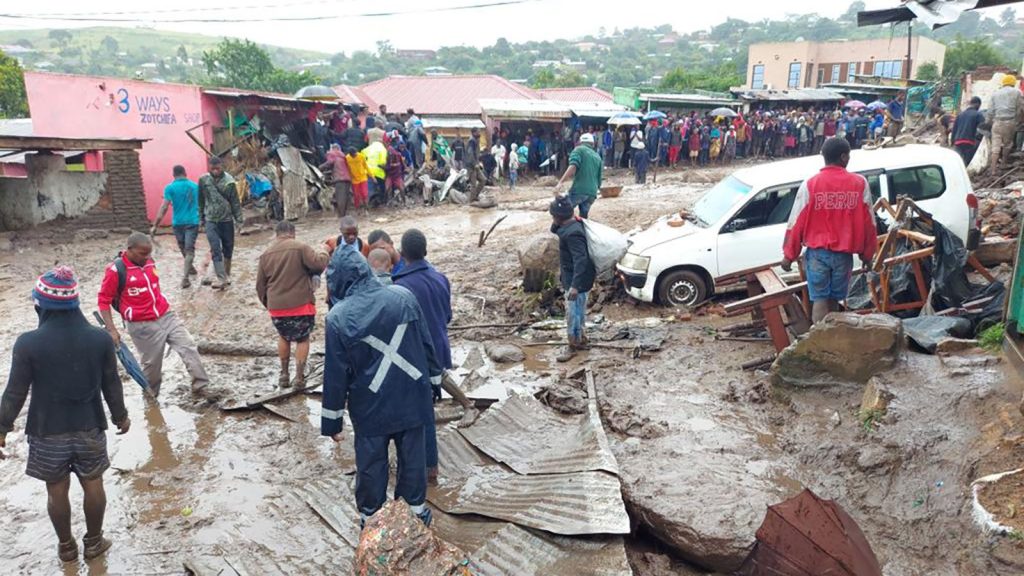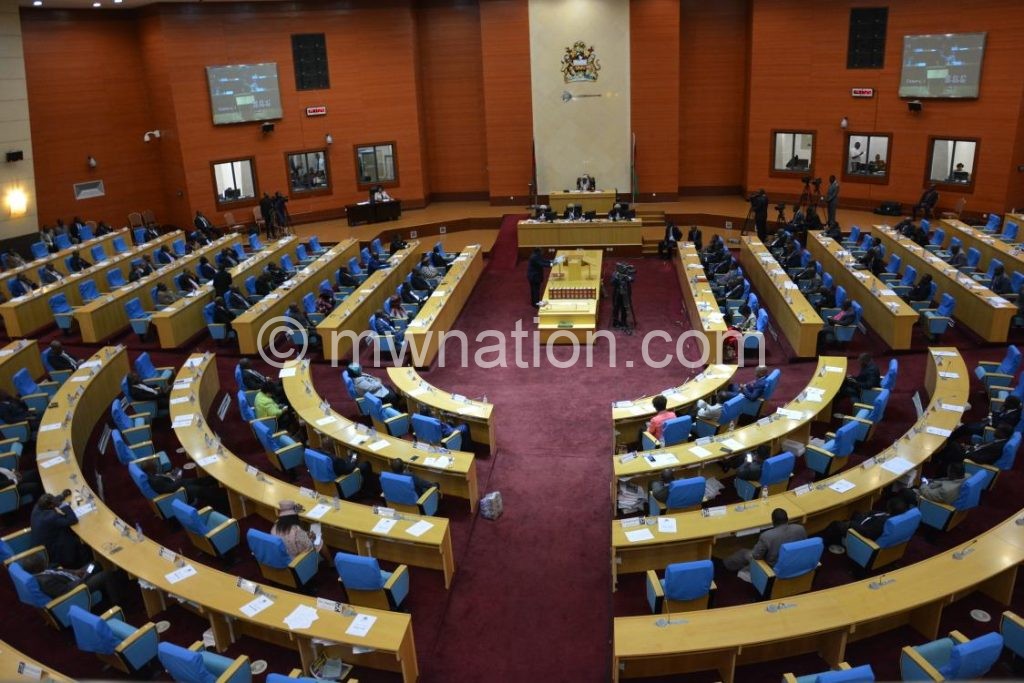DRM Bill passed with 18 amendments
Parliament extended sitting time by over one and half hour yesterday debating the Disaster Risk Management (DRM) Bill which was later passed with 18 amendments.
Democratic Progressive Party (DPP) spokesperson on the Bill Werani Chilenga, who is also Natural Resources and Climate Change Committee chairperson, said the Bill had 61 gaps which needed to be rectified.

When the floor was opened for debate, members of Parliament (MPs) spent time arguing on the clauses of the Bill, at times refering the matters to Minister of Justice and Constitutional Affairs Titus Mvalo to clarify.
Some of the ammended clauses include clause 6(1) by deleting it and replacing it to give powers to the President to appoint the Secretary to President and Cabinet (SPC) as chairperson of the National Disaster Management Committee or an independent person approved by the Public appointments committee (PAC).
The House further ammended clause 6 (2) to read, “at its first meeting, the committee should appoint a Vice Chairperson” and also clause 6 (3) (c) to read, “the committee shall so decide by a simple majority”.
Clause 15 (f) was extended to include, “Conduct inclusive public awareness considering languages, literacy levels and access to different media” and clause 32 was ammended to include the Secretary for Natural Resources and Climate Change and the Secretary of Information in the committee.

Several other clauses were ammended one by one before the Bill was finally passed, but Chilenga still expressed reservations on the establishment of the Disaster Trust Fund instead of introducing a specific vote for the Department of Disaster Management Affairs (Dodma).
“What we wanted was the introduction of a specific vote for Dodma because that would make Dodma more independent and free and it would make it more efficient because it controls its own funds,” he said.
Chilenga also expressed reservations with clause 37 (4) which says incase of a disaster, the minister shall report to Parliament within seven days when Parliament is sitting.
“On this one, the Bill assumes that the House will be sitting all the time but that is not the case. The Bill should have been more clear to say when the house is not sitting, the President and the Speaker shall convene an emergency sitting,” he said.
But Mvalo said the amendments were minor; hence, the House was able to debate them and amend although he appreciated their impact to the strengthening of the legislation.
The Bill sought to repeal the Disaster Preparedness and Relief Act (Cap. 33:05) and replace it with a new Act in order to align the law with developments in the area of disaster preparedness, risk reduction, and response and recovery.
The Bill, among other things establishes a National Disaster Risk Management Committee which will principally be responsible for providing leadership in the development, coordination and implementation of disaster risk management strategies and interventions and also be responsible for recommending to the President the declaration of a state of disaster, and which shall comprise all key stake holders in disaster risk management, including government officials at Principal Secretary level, disaster risk management experts representatives of civil society organisations, and a representative each of the Human Rights Commission and Red Cross Society of Malawi and outlines the powers and functions of the National Committee.
The Bill further establishes a National Disaster Risk Management Technical Sub-Committee which will principally be responsible for providing technical support to the National Committee and the Commissioner, and provides for the membership and functions of the committee.
It also establishes the office of the Commissioner for Disaster Risk Management which will be responsible for development, coordination and implementation of disaster risk management strategies and interventions, and prescribes the powers and functions of the office.
It also provides for the declaration of a state of disaster and the measures to be taken upon declaration of the state of disaster; provides for the procedure for, and consequences of, declaring disaster prone areas for purposes of disaster risk management and the resettlement of persons occupying those areas.
Lastly the Bill provides for a structured mechanism for appeal for international relief assistances, and regulates the operation of assisting international actors; and provides for the establishment of the Disaster Risk Management Trust Fund, which shall be a repository of funds intended for use in disaster risk management.
Speaking after the Bill was passed, Leader of the House Richard Chimwendo Banda thanked the MPs for remaining in the House to finalise the Bill which he termed “crucial”.
“I congratulate all of you for working late to ensure that we finalise this important Bill. You participated actively and your contributions have added great value,” he said.
Civil society organisations (CSOs) have been pressing for the enactment of the Bill since 2017. Recently, some CSOs marched to Parliament to present a petition urging the House to pass the Bill, following which both Chilenga and Chimwendo Banda promised that the Bill would be tabled and debated in the current meeting of Parliament.





